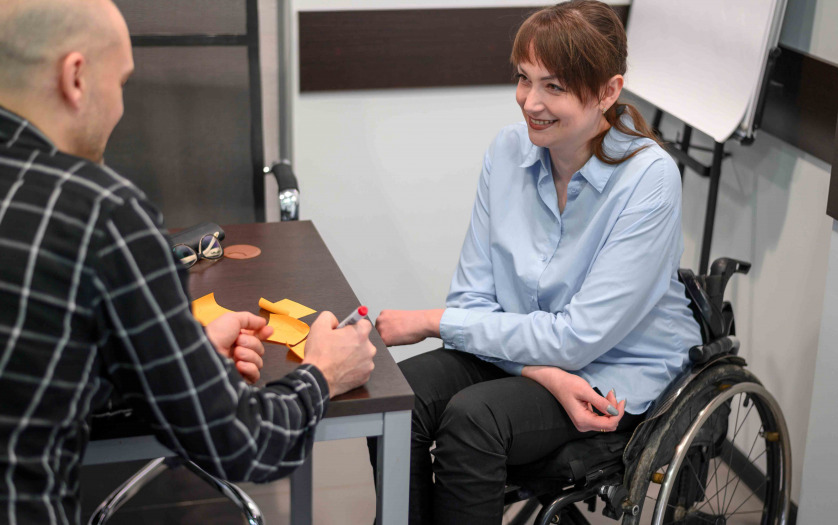
A new study by Rutgers University researchers finds that job candidates with disabilities are more likely to make a positive first impression on prospective employers when they promote technical skills rather than soft skills, such as their ability to lead others.
The findings, published in the International Journal of Conflict Management, contrast this with the results for candidates without disabilities who were positively evaluated when they highlighted either hard or soft skills during initial job interviews.
“Job interviews are challenging for everyone, but particularly so for people with disabilities who have always had difficulties presenting themselves favourably to gain employment,” said Rutgers Business School professor Mason Ameri, according to a report published in Science Daily.
“People with disabilities encounter an implicit bias that they will not be as productive as their non-disabled peers,” said Ameri, who co-authored the study. “Knowing how to navigate the conversation with potential employers is critical for leveling the playing field.”
In three studies, 1,711 participants watched videos of candidates — either visibly seated in a wheelchair or not — using influence tactics to answer an opening question during an interview for a project manager position. Participants were asked to rate their perceptions of the job candidate’s employability and appropriate level of salary, as well as how trustworthy they appeared.
Among the findings:
- Employability: For candidates without disabilities, discussion of hard skills or soft skills led to more favorable perceptions. While the expression of hard skills similarly improved the employability rating of the candidate with the disability, discussion of soft skills did not.
- Pay: When candidates with disabilities discussed salary early in the job interview, it appeared to hurt them more than when candidates without disabilities raised the same topic. Still, even for candidates without disabilities, announcing a salary figure so early in the process seemed to be off-putting in terms of whether they should get the job at all.
- Trustworthiness: Candidates with disabilities were not viewed as trustworthy regardless of the tactic they used. For candidates without disabilities, ratings of trustworthiness increased when they discussed hard or soft skills. However, other tactics such as signalling alternative offers or suggesting a salary figure did not have the same positive effect.
“Influence tactics such as emphasizing your skills and abilities are a good idea but don’t necessarily work the same way for everyone,” said Terri Kurtzberg, co-author and professor at Rutgers Business School. “Instead, people with disabilities should focus on job-related hard skills and competencies instead of softer skills and warmth. This choice accelerated positive impressions of employability.”








